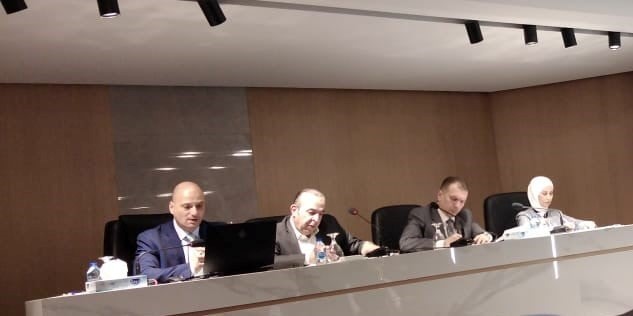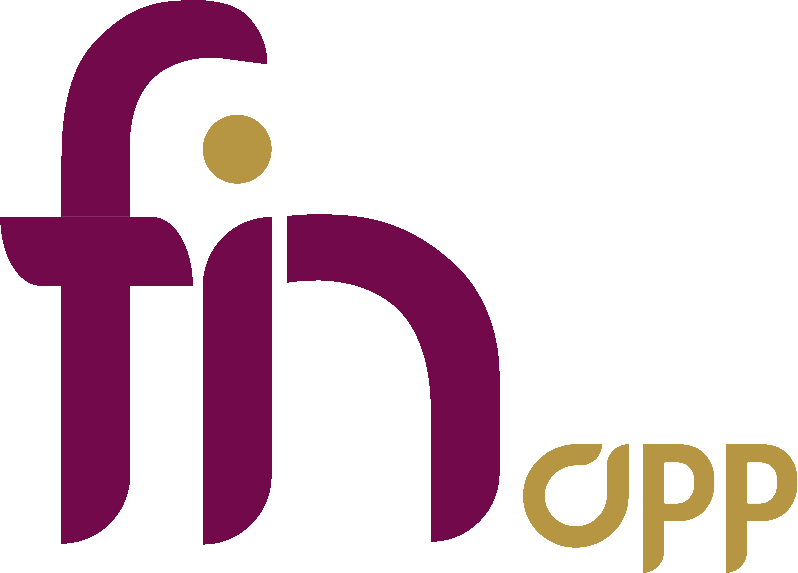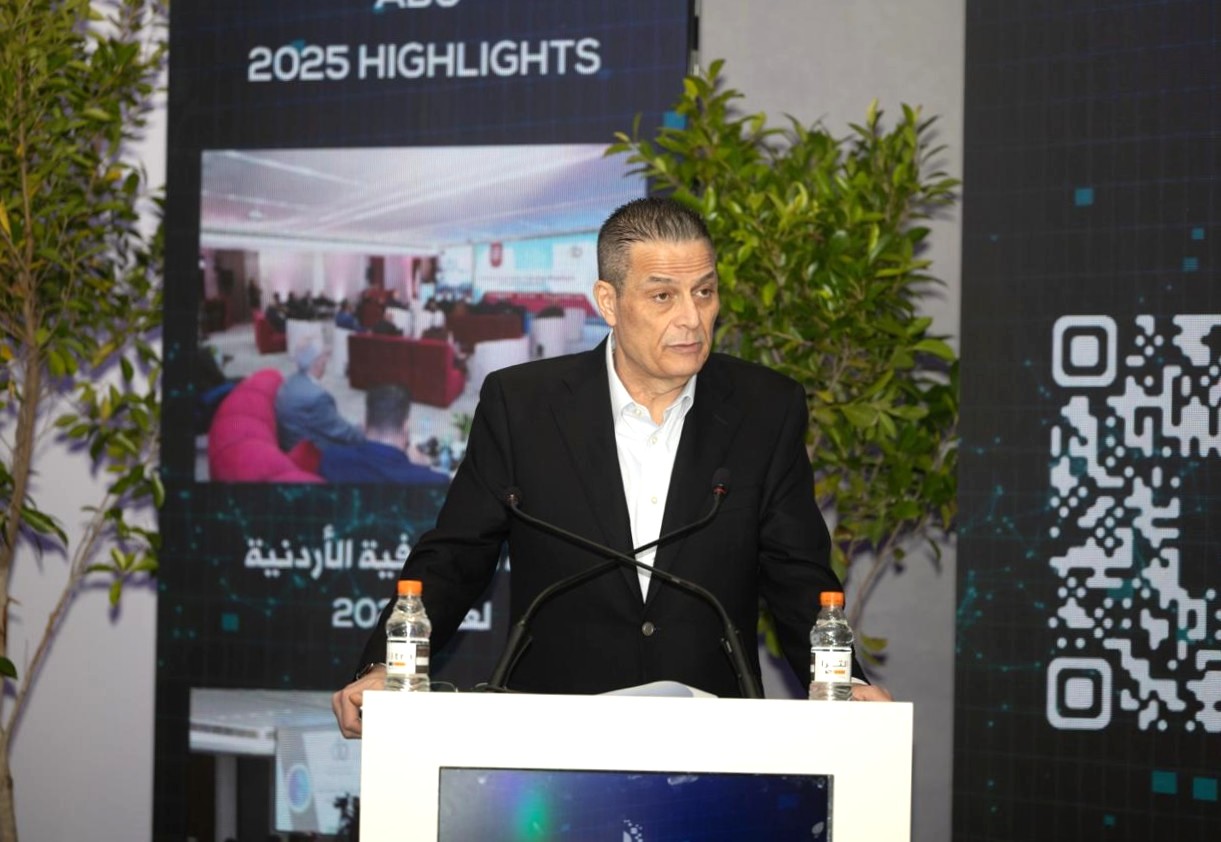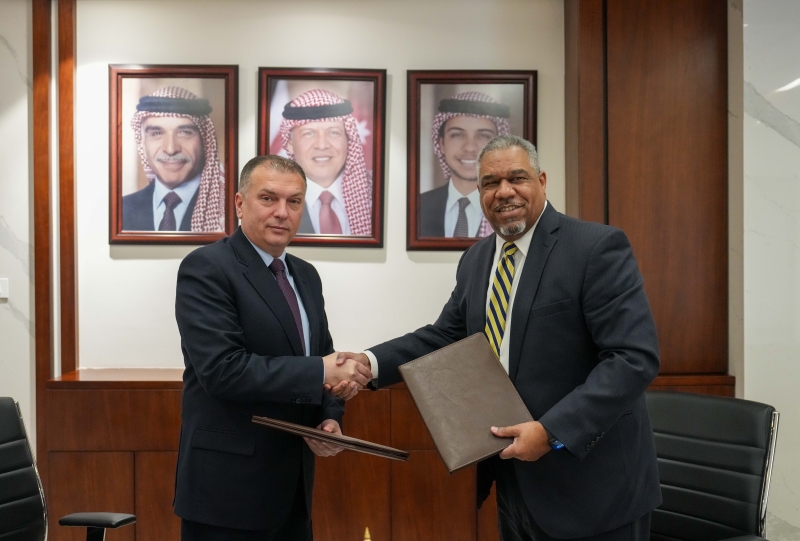
Today, Monday, 6/12/2021, the dialogue session on the national self-employment program “Enhad” was held at ABJ’s headquarters in the presence of representatives of commercial and Islamic banks participating in the program and partners from the Business Development Center, the Central Bank of Jordan, the Jordan Loan Guarantee Corporation and ABJ. The session discussed the program’s results and achievements of the program since its launch in September 2019, reviewing the rationale for its progress, the challenges facing banks in implementing it and reaching practical and joint solutions after consultations and listening to the observations received during the session.
The session was started by Dr. Maher Al-Mahrouq, ABJ Director General by welcoming the honorable attendees, thanking them for accepting the association’s invitation to participate and attend noting that this session comes after a long break due to the Corona pandemic.
Al-Mahrouq reviewed the most prominent results of the program which were achieved despite of the Corona pandemic repercussions on the Jordanian economy. The average value of one loan amounted to approximately 31 thousand dinars, and the number of job opportunities provided by one project ranged from 4-5. To this day, the program has managed to create nearly 1,000 jobs, distributed among the different governorates. Speaking of the governorates, Amman had the highest number with 46 projects and a total value of loans amounting to 2.13 million Dinars, which provided 192 job opportunities, followed by Al-Karak with 19 projects and a total value of 904 thousand Dinars, which created 68 jobs, followed by Ma’an with 16 projects and total loans amounted to 625,000 Dinars, which created 177 job opportunities. Irbid had 29 projects totaling 608,000 Dinars, which provided 85 job opportunities. The rest of the projects were distributed to different governorates.
Al-Mahrouq added that the results achieved may be acceptable in light of the Corona pandemic, but it is expected that the program will achieve more positive results in the near future since the participating banks have acquired sufficient knowledge about the terms of the program in addition to the training and qualification courses held by the Business Development Center and the concerted efforts of partners from the Central Bank of Jordan, the Jordan Loan Guarantee Corporation, and the “Erada” productivity enhancement centers of the Ministry of Planning.
On the other hand, Mr. Ghaleb Hegazy, Director General of the Business Development Center, spoke about the program’s achievements since its launch and the governorates through which “Enhad” projects were distributed. He emphasized the competitive advantage of “Enhad” Program and its ability to set up projects in remote areas far from provincial centers. Hijazi reviewed the mechanism of the program’s workflow and the various stages that the applicant goes through from training, qualification and economic feasibility study ending with soft financing. At the same time, he praised the cooperation of partners and their main role in the program.
During the workshop, Dr. Khaldoun Al-Washah from the Central Bank of Jordan spoke about “Enhad” Program and the promising opportunities it offers to Jordanian youth by providing jobs and fighting unemployment stressing at the same time that the program enjoys continuous support and attention from the Central Bank. For her part, Mrs. Amal Jaradat of the Jordan Loan Guarantee Company indicated that she expected more positive results from the program during the coming period by highlighting the age groups ranging from 18-24 years.
The attendees, including representatives of commercial and Islamic banks and partners, discussed ways and mechanisms to develop and advance the program to achieve more positive results during the coming period specifically during 2022. Banks’ representatives tackled the challenges faced during the finance phase, which is the last one, and it is conducted by the applicant after application, registration, training and economic feasibility study.
The attendees praised the dialogue session hosted by ABJ stressing the need to hold similar sessions in the near future to discuss the most prominent developments of the program and the various stages of its implementation.





